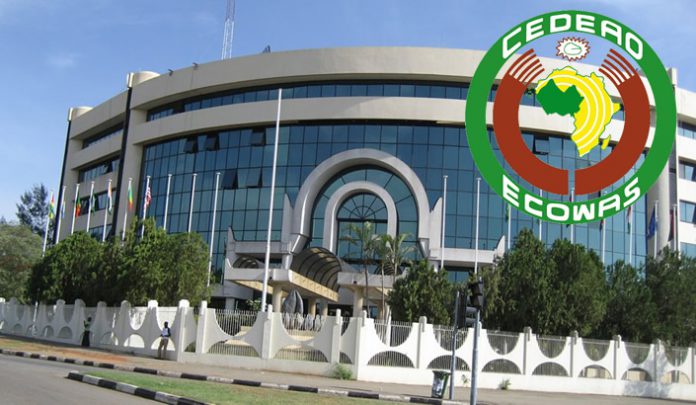The ECOWAS Court of Justice on Wednesday in Abuja ruled that Nigeria violated the rights of citizens during the 2020 EndSars protests.
Recall that the #EndSARS protest erupted in numerous Nigerian cities in October 2020. At the Lekki Toll Gate in Lagos State, where it was most pronounced, security forces shot at peaceful protesters.
Similar attacks on peaceful demonstrators took place in other parts of the country during the protests.
The ECOWAS Court gave its decision affirming the violation of the rights of three Nigerians who participated in the protest at Lekki Toll Gate.
The court held that the Federal Republic of Nigeria violated the human rights of Obianuju Catherine Udeh, Perpetual Kamsi, and Dabiraoluwa Adeyinka.
The plaintiffs alleged in their suit that during the peaceful protests against the now-disbanded Special Anti-Robbery Squad (SARS) at Lekki Toll Gate, Lagos State, on 20 and 21 October 2020, the Nigerian government committed multiple human rights violations.
The first plaintiff said soldiers shot protesters, resulting in deaths and injuries, which she live-streamed. She said she received threatening phone calls that forced her into hiding and eventual asylum.
The second plaintiff, responsible for protesters’ welfare, described how soldiers began shooting after a power outage, leading to her hospitalisation due to police tear gas.
The third plaintiff recounted narrowly escaping being shot, witnessing soldiers refusing ambulance entry, and later observing inadequate hospital care for victims.
The plaintiffs sought declaratory prayers and compensation from the court for these violations.
In its defence, the Nigerian government denied all of the applicants’ claims, stating that the protesters unlawfully assembled at Lekki Toll Gate under the guise of protesting against SARS.
The government, through its counsel, submitted that its agents, including the police and military, followed strict rules of engagement and did not shoot or kill protesters.
It argued that the first plaintiff incited the crowd by playing music and using her Instagram page to stir disaffection against law enforcement targeting escapee Boko Haram members and bandits.
The government also argued that the second plaintiff’s logistics and welfare support indicated her support for the violent protest.
It claimed soldiers were present to restore peace until police arrived and denied any harm inflicted on protesters or refusal of ambulance access.
The government further argued that the third plaintiff’s presence was meant to escalate violence.
It maintained that the treatment and care of the injured were managed by the Lagos State government and asserted that the plaintiffs had not provided credible evidence to support their claims or reliefs sought.
In its judgement on Wednesday, the ECOWAS Court rejected the Nigerian government’s defence.
The judge rapporteur, Koroma Sengu, who delivered the judgement, ruled that Nigeria violated the human rights of the three applicants.
The Court found Nigeria in breach of Articles 1, 4, 6, 9, 10, and 11 of the African Charter on Human and Peoples’ Rights (ACHPR), concerning the right to life, personal security, freedom of expression, assembly and association, protection from torture, the state’s duty to investigate, and the right to effective remedy.
But, according to a statement from the ECOWAS Court’s Communication Division detailing the decision, the court dismissed the allegation of a right-to-life violation under Article 4 of the ACPHR.
However, the court ordered Nigeria to pay each applicant N2 million (two Million Naira) for violations of their rights to personal security, protection from torture, freedom of expression, assembly and association, and the state’s duty to investigate human rights abuses.
The court mandated Nigeria to adhere to its obligations under the African Charter on Human and Peoples’ Rights, and investigate and prosecute its security agents responsible for the violations.
It also gave the Nigerian government six months to report the measures taken to comply with the judgement.
The three-member panel comprised Dupe Atoki, Ricardo Claúdio Gonçalves, and Koroma Sengu.












